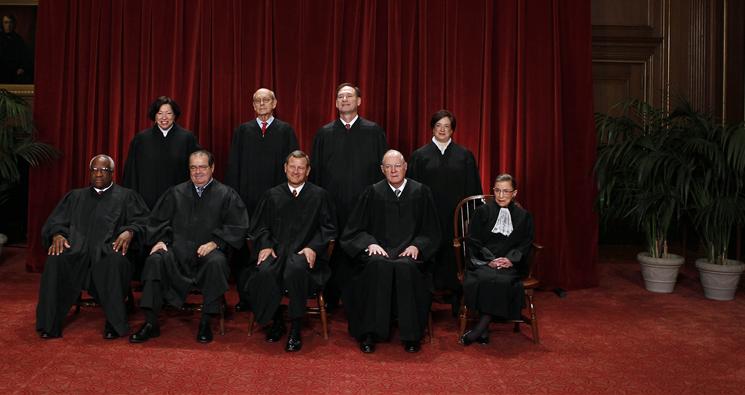ObamaCare: Supreme Court Agrees to Consider Mandate and Severability as ACLJ Urged
Today, the Supreme Court officially announced that it will decide the constitutionality of ObamaCare.
Just three weeks ago the ACLJ filed an amicus curia brief to the Court on behalf of 105 Members of Congress and tens of thousands of Americans urging it to take up this landmark case. Our amicus brief argued that the high Court should review the ObamaCare challenge out of Florida and consider two key issues. The Court should review the constitutionality of the individual mandate and decide if the individual mandate can be severed from the rest of ObamaCare.
The Supreme Court granted review of both of these issues – the two most critical issues it must decide in determining the final fate of ObamaCare.
First, the ACLJ argued that the Supreme Court should grant review of the constitutionality of the individual mandate due to a split in the federal appeals courts.
As the brief notes, the “individual mandate” provision of ObamaCare not only requires that all Americans purchase a particular good or service, in this case “Federal Government-approved health insurance,” but requires that they maintain that insurance for the rest of their lives or pay penalties.
The Sixth Circuit Court of appeals upheld the constitutionality of the individual mandate, while the Eleventh Circuit Court of appeals found that provision unconstitutional. Thus, under the Court’s own rules and well-established case law, the Supreme Court has the opportunity to and should resolve this “matter of national importance.”
Second, our brief argued that the Supreme Court should also consider the issue of severability. Severability is simply, when one provision of a statute is found unconstitutional, what happens to the rest of the statute. If it is severable, the rest of the statute, minus the unconstitutional provision, remains in full effect. If the statute is not severable or inseverable, the entire statute must be struck down if any part of it is unconstitutional.
A statute is severable only if it is clear that Congress would have intended the rest of the statute to function without the part that had been struck down. The Supreme Court has held that a statute is not severable (i.e. the entire statute must be struck down if one part is found unconstitutional), “if the balance of the legislation is incapable of functioning independently.” Alaska Airlines v. Brock, 480 U.S. 678, 684 (1987).
In other words, if the statute could not effectively function without the provision that was held to be unconstitutional, then the entire law must be struck down. In this case, if ObamaCare could not effectively function without the individual mandate, the entire heath care law would have to be struck down.
The brief made two basic arguments to show that the issue of severability is one the Court should consider. First, while what is known as a severability clause – a specific provision of the bill speaking to Congress’ intent that it be severable should part of the bill be struck down – was included in an early version of the bill, it was removed from the final bill. Thus, Congress had the ability to state that it intended the individual mandate to be severable from the rest of ObamaCare, but it specifically chose not to – a clear indication that it did not intend the individual mandate to be separated from the rest of the law.
Second, our brief argued that the Federal Government has specifically admitted that ObamaCare could not function without the individual mandate. In this particular case, the government conceded, “Congress found that [the individual mandate] ‘is an essential part of this larger regulation of economic activity,’ and that its absence ‘would undercut Federal regulation of the health insurance market.’”
We argued that if the Supreme Court were to uphold the Eleventh Circuit’s decision that the individual mandate is unconstitutional – which we urge it to do – it must also consider the issue of severability and hold that the entire law must be struck down.
It is a huge victory that the Supreme Court granted review of both the individual mandate and severability, and we are preparing our critical amicus brief to the Court on both of these issues, urging it to find all of ObamaCare unconstitutional.
Please add your name to our brief today by signing on to it here.
